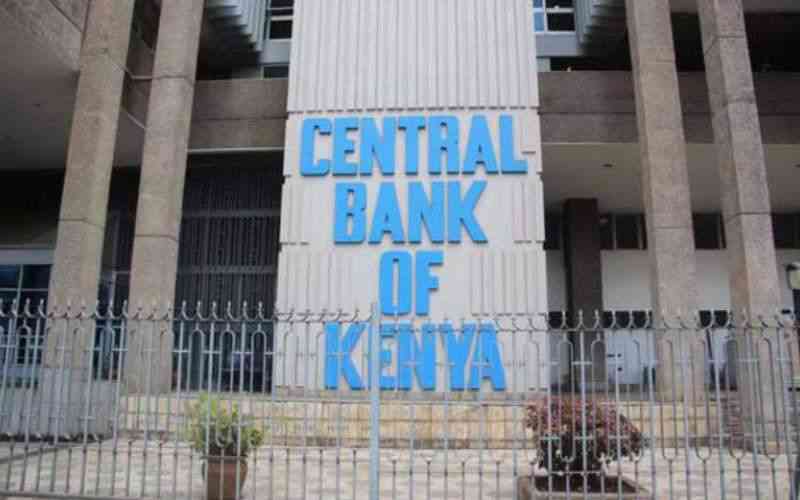Kenyan Central Bank Battles Mobile Banking Fraud, Insiders Suspected

Instances of financial fraud are alarmingly prevalent in Kenya, often marked by suspicious timing that suggests deep-seated internal complicity. Sylvia Wanjiru experienced this first-hand when she received a call claiming to be from her bank's customer service moments after a million-shilling ($7,773) payment hit her account. While she recognized the pattern and reported it, her parents were less fortunate, losing KES 34,000 ($263) and KES 2,500 ($19) from their mobile money wallet after responding to a fraudulent SMS alert regarding a suspended account. These incidents are not isolated, as numerous Kenyans report similar encounters, including calls immediately following cash deposits or transfers, and deceptive text messages leading to unauthorized withdrawals.
The speed and precise timing of these fraudulent activities strongly indicate that criminals collaborate closely with bank staff and mobile money agents who possess real-time access to customer information. This alarming trend is corroborated by official reports; the Central Bank of Kenya (CBK), in its Financial Sector Stability Report 2025, revealed that cyber fraud cases in the banking sector more than doubled in 2024, surging from 153 to 353. The amount exposed rose to KES 1.9 billion ($14.7 million), with actual losses nearly quadrupling to KES 1.5 billion ($11.6 million). The Communications Authority of Kenya (CA) further reported a staggering 7.9 billion cyber threats in the first eight months of 2025, double the figure from 2024, attributing this exponential rise from 7.7 million in 2016 to Kenya's rapid economic digitisation. Despite these escalating risks, the CBK maintains that Kenya’s banking sector remains "resilient."
However, accounts from victims, bank employees, and law enforcement agencies paint a different picture, suggesting that most financial losses stem from "inside jobs." A former compliance officer detailed a thriving shadow industry in Nairobi neighborhoods like Utawala and Ruiru, where sophisticated mobile banking fraud operations resemble legitimate call centers. These setups, equipped with rows of desks, computers, and phones, are allegedly staffed by individuals who receive tips from bank personnel monitoring accounts. Within minutes, funds are transferred to "mule accounts," subsequently laundered through mobile money wallets and withdrawn by agents, or even pushed into crypto wallets. With a 67% youth unemployment rate, workers are often recruited through deceptive job advertisements for "customer service" roles, only to find themselves involved in impersonating bank officials or mobile money agents. The allure of quick cash per successful hit motivates many to stay, while corrupt police officers are reportedly paid to provide protection, issue warnings before raids, or obstruct investigations, revealing a deeply entrenched and extensive criminal network.
These syndicates are designed for scale, according to an investigations officer at the Banking Fraud Investigations Unit (BFIU), a unit under the Directorate of Criminal Investigations (DCI). They primarily target major retail lenders such as Equity Bank, KCB Group, and Co-operative Bank, which collectively serve over 50 million customers, enabling fraudsters to conceal their activities amidst millions of daily transactions. Vulnerable groups, including rural pensioners, urban traders, and salaried workers with predictable incomes, become easy prey in this "numbers game." While often non-violent, these frauds can escalate to deadly consequences, as seen in April when a teacher in Mumias was killed after withdrawing KES 285,000 ($206), with detectives suspecting collusion between bank tellers and robbers. Similarly, in 2024, Equity Bank initially reported a KES 1.5 billion ($11.6 million) loss as a "sophisticated hacking attack," though subsequent investigations alleged staff collusion with property developers and lawyers to siphon money from a salary suspense account through thousands of small, undetected transfers.
On social media, many Kenyans mistakenly attribute mobile banking fraud to prisoners, overlooking the sophisticated operations run by individuals within their communities. While some operations benefit from corrupt official backing, even regulators like the BFIU acknowledge being overstretched by the sheer volume of daily transactions processed by mobile money platforms and banks, leading to many cases going unnoticed. Nevertheless, in response to mounting fraud, several Kenyan banks have initiated internal "housecleaning" measures to rebuild customer confidence. KCB Group, NCBA, Absa, and Co-operative Bank have all reportedly fired staff due to misconduct. Equity Group took a more public and aggressive stance in May, announcing the dismissal of 1,500 employees to safeguard its image and customers, with CEO James Mwangi vowing to be "ruthless" in protecting the bank and its clientele. This exercise has since been extended to its Ugandan subsidiary, which has also faced staff-linked fraud.
The distinction between cyber fraud, insider theft, and organized crime has become increasingly blurred. The BFIU officer notes that many victims do not report incidents, either due to embarrassment, the perceived smallness of the sum, or the bureaucratic hurdles of filing a police complaint, implying that the CBK's reported KES 1.5 billion loss is likely an understatement. Complex schemes might begin with a phishing text, involve a bank teller passing on stolen data, see funds laundered through mobile money, and be protected by corrupt police, thus intertwining various forms of criminal activity. This blurring of lines ultimately erodes customer trust, as many remain unsure whether they are battling external hackers or rogue insiders within their own banks. Banks, anxious to reassure stakeholders, often label losses as "cyber threats" even when evidence points to human involvement. This disconnect between official narratives and the reality faced by victims poses a significant danger, highlighting that as Kenya's financial system expands, the most vulnerable point remains its human element—the tellers, agents, and officers with privileged access to real-time customer records.
Recommended Articles
Central Bank Rocked by Sh14.5 Billion Currency Printing Tender Mystery!
)
Senator Andrew Omtatah is challenging a Sh 14.5 billion currency printing contract awarded by the Central Bank of Kenya ...
Digital Lenders Outcry: Accusations Fly Against Kenya's Central Bank Over Overreaching Mandate!

Digital lenders in Kenya, through the DFSAK, accuse the Central Bank of Kenya of overreaching its mandate in data regula...
Kenya's Central Bank Slashes Key Rate to 9.5%: Economic Impact Looms

Kenya's Central Bank has lowered its benchmark rate to 9.50 percent, continuing its policy to stimulate economic activit...
Kenya's Central Bank Slashes Key Rate to 9.5%: Economic Impact Looms

The Central Bank of Kenya's Monetary Policy Committee has lowered its benchmark rate to 9.50 percent, aiming to stimulat...
You may also like...
Haaland's UCL Rampage: Brace, Record, and X-Rated Fury Rocks European Football!

Manchester City were held to a frustrating 2-2 draw against Monaco in the Champions League, despite Erling Haaland's two...
Manchester United's Managerial Maze: Amorim on the Brink, Solskjaer's Ghost Looms

Ruben Amorim faces unprecedented pressure at Manchester United as inconsistent results and a low Premier League standing...
Real-Life Couple Justin Long & Kate Bosworth Unleash 'Coyotes' Horror Comedy, Securing UK Deal

Real-life partners Justin Long and Kate Bosworth star in the new horror comedy and survival thriller “Coyotes,” a film t...
Kenyan Star Bahati Ignites Firestorm with Provocative New 'Seti' Track!

Bahati has ended his musical hiatus with the controversial new song "Seti," featuring explicit content that deviates fro...
Global K-Pop Domination Ignored by Grammys? A Critical Look

Korean pop music has achieved global megaforce status, dominating charts and captivating millions of fans worldwide. Des...
One Direction Reunites! Global Pop Idols Confirm Massive New Project

One Direction stars Louis Tomlinson and Zayn Malik are reportedly reuniting for a Netflix road trip documentary, set to ...
Royal Arrival: Victor & Henrietta Thompson Welcome Baby Princess Zivah!

Gospel singer Victor Thompson and his wife, Henrietta, have joyfully welcomed their baby girl, Zivah Ufuoma Tamunopakiri...
Viral Sensation: M&S 'Cuddle' Jumper Takes Autumn by Storm at Just £26

Discover the M&S Textured Crew Neck Jumper, a viral sensation perfect for colder days. Praised for its luxurious feel, v...